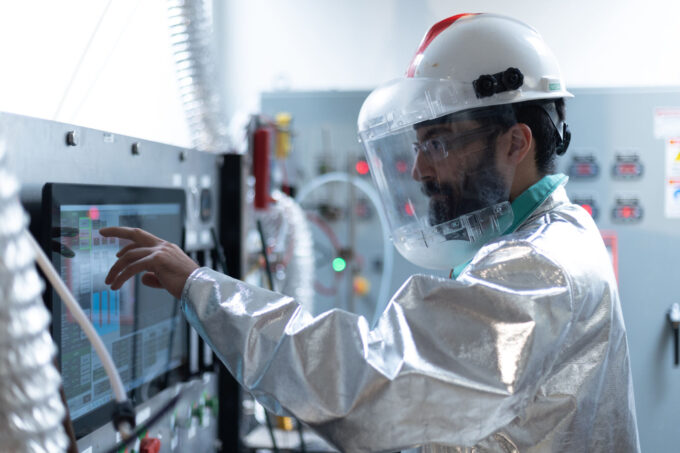As the United States looks to strengthen domestic manufacturing, reduce dependence on foreign supply chains, and accelerate the energy transition, critical minerals have become a standout concern.
Critical minerals and rare-earth elements are the building blocks for energy-transition technologies ranging from batteries for EVs, to solar panels, to wind turbines. Yet the vast majority of these materials are mined and refined overseas, often through environmentally destructive processes; today’s rare earth refining processes are energy-intensive, require harsh chemicals, and create an estimated 2,000 tons of toxic waste per ton of rare earth elements derived.
Phoenix Tailings is pioneering the sustainable production of rare-earth metals that’s waste-free, net-zero, and cost-competitive with current methods.
“Our goal is to create the metal without the waste, while being economic,” explains Nicholas Myers, the startup’s CEO and co-founder.
Phoenix Tailings’s tech hinges on predictive complexation, the ability to predict how chemicals will react with finicky critical minerals. Using these insights, the startup has developed a non-toxic chemical that allows for sustainable, low-temperature refining.
In addition to eliminating toxic waste, Phoenix Tailings’s technology sidesteps what it’s calculated to be 64 tons of greenhouse-gas emissions associated with each ton of critical minerals produced today. The modular setup can be staged in existing buildings.
Phoenix Tailings’s beachhead market is the automotive industry, with secondary verticals including defense, consumer electronics, and medical devices. It’s building a refining facility in Exeter, NH that’s on track to begin operations this summer—a milestone in the United States’s effort to be self-sufficient in sourcing critical minerals.

“It’ll be the largest rare-earth-metals refinery in the western hemisphere, and one of the largest in the world—and we’re building it right here in the United States,” Myers says. “This plant will have 200 metric tons of metal output on an annualized basis at first, with a capacity of up to 400.”
This development comes at a critical time. As the United States evaluates ways to strengthen domestic supply chains and reduce reliance on foreign sources for critical minerals, efforts to establish refining capacity within the country are becoming increasingly important. Phoenix Tailings’s approach represents one pathway toward advancing that goal, while addressing environmental considerations associated with traditional refining methods.
Though Myers often serves as the public face of the company, Phoenix Tailings was built by a multidisciplinary founding team of four individuals—Myers, Anthony Balladon, Tomás Villalón Jr., and Michelle Chao—with deep expertise in engineering, materials science, and operations. Together, they have grown the company from an idea formed at a bible study, to experiments in their backyards, to a team of 45 employees, and eventually joining Greentown Boston in 2019.
“The value has changed over the years, because we started as five people in a backyard,” Myers says. “At that time, it was about building the network—I really love the networking events. Then later on, it was about getting in touch with corporate partners, like Sumitomo. Lately, it’s been primarily two things: the Investor Program, which has been very helpful, we’ve had a number of our investors come through the Deal Flow Digest. And then the second thing is hiring—we get a lot of referrals through Greentown, either through Greentown’s website or people tell me, ‘Oh, I heard about you at Greentown Labs.’ That’s really helpful for me. Finding people who want to work in climatetech can be tricky, and Greentown has a really great ecosystem around it.”
Phoenix Tailings has raised more than $80M to date and is about to close an oversubscribed Series B round with investments from BMW, Yamaha Motor, Presidio Ventures (the corporate venture capital arm of Sumitomo Corporation), and others. The startup plans to raise a Series C in 2026 to expand its refining capacity and further develop upstream extraction technologies, specifically targeting waste-based solutions that avoid the environmental footprint of new mining. Any interested investors can get in touch here.


